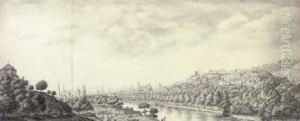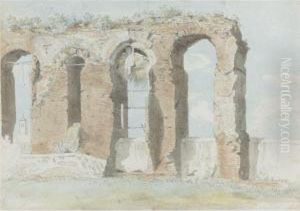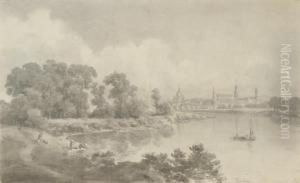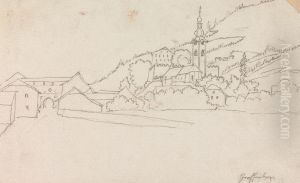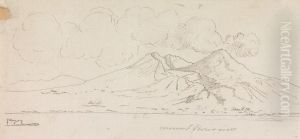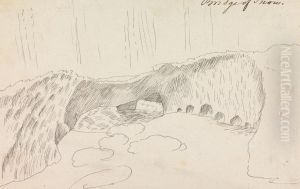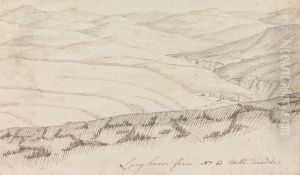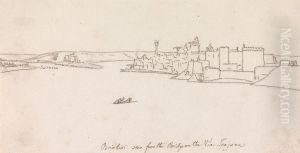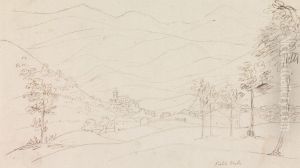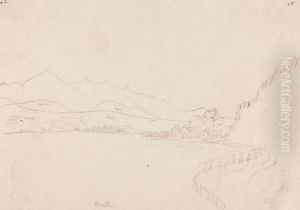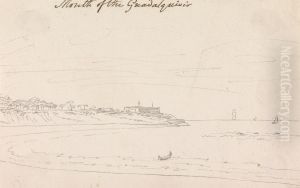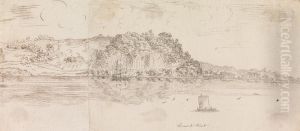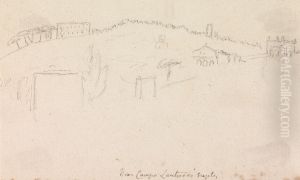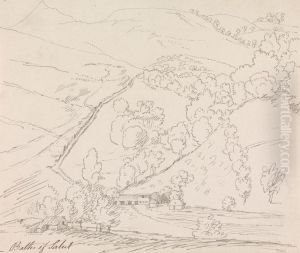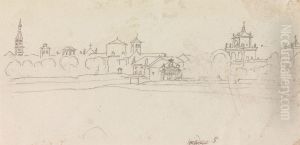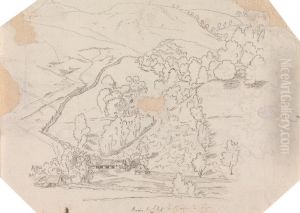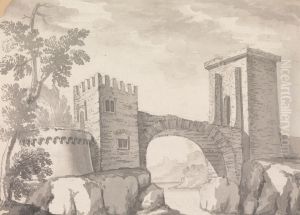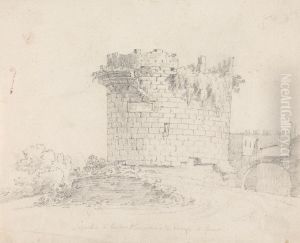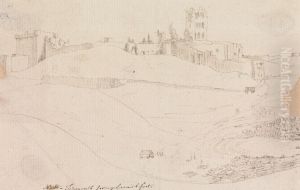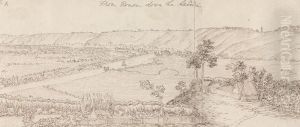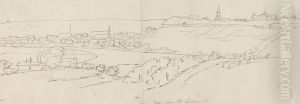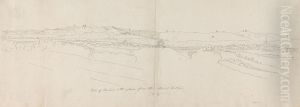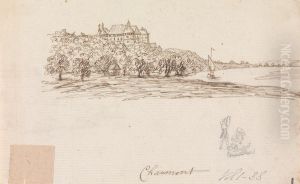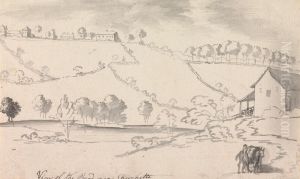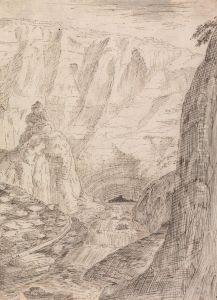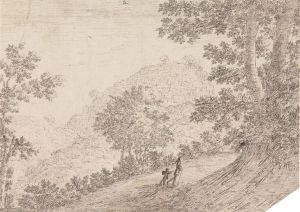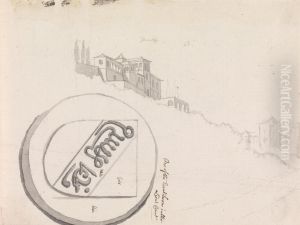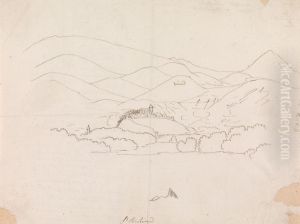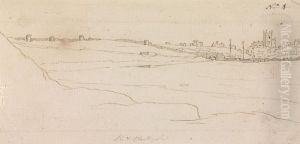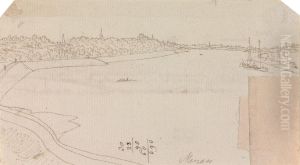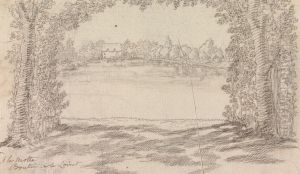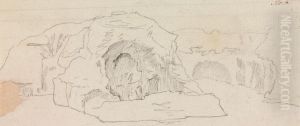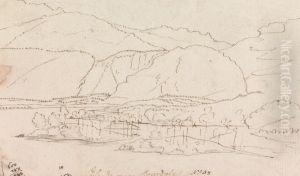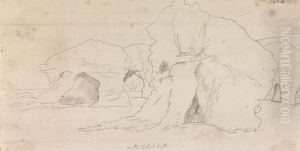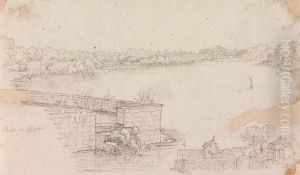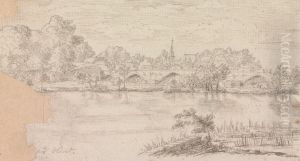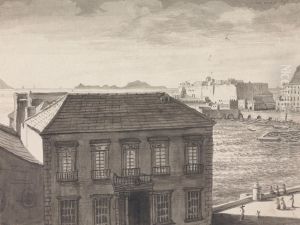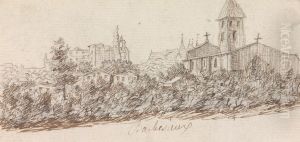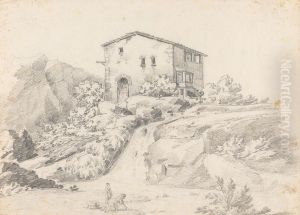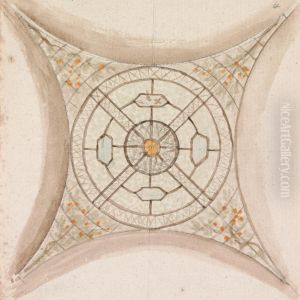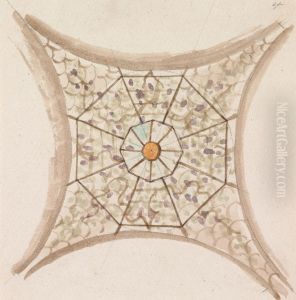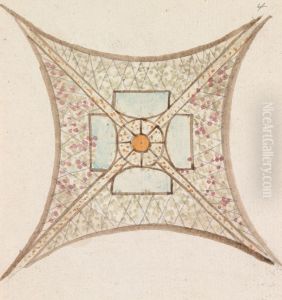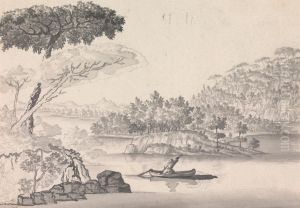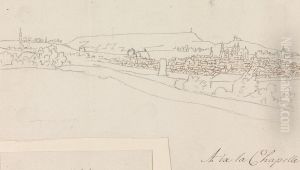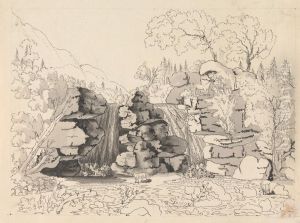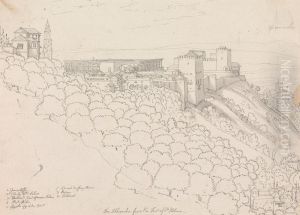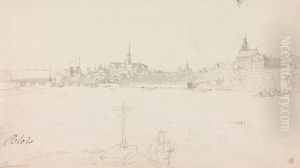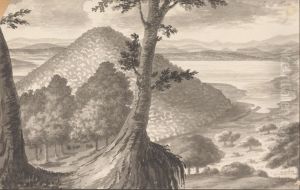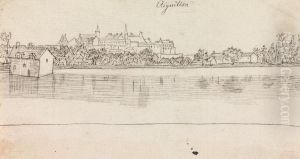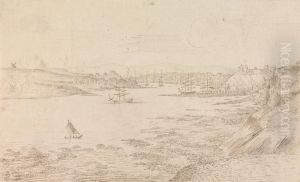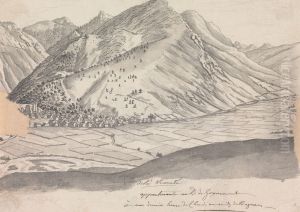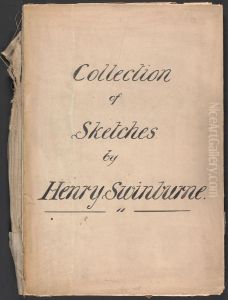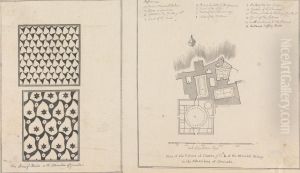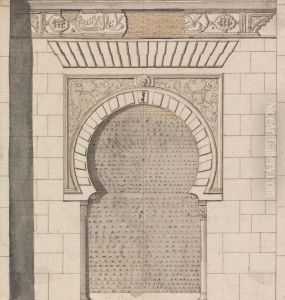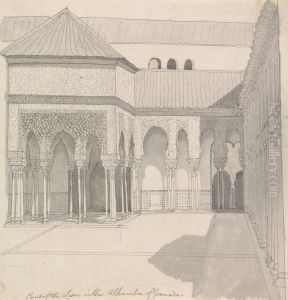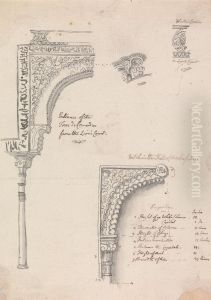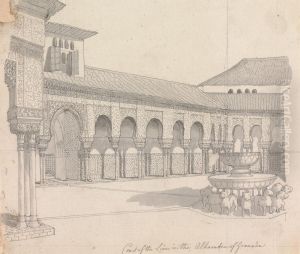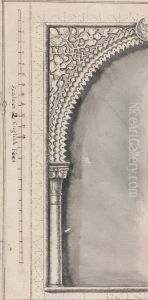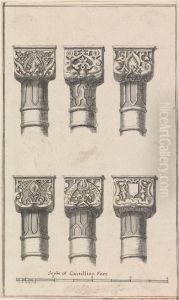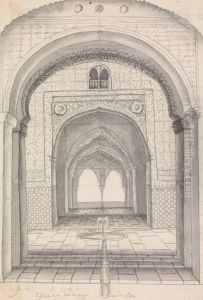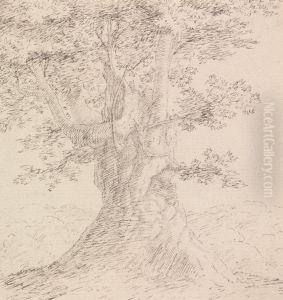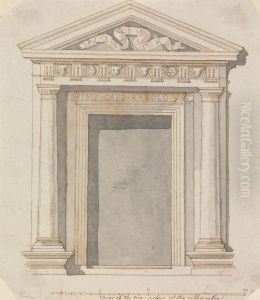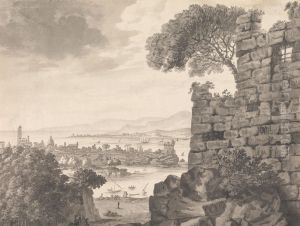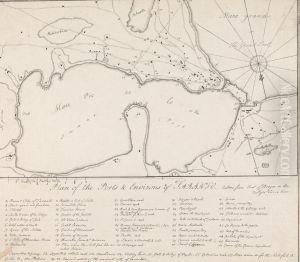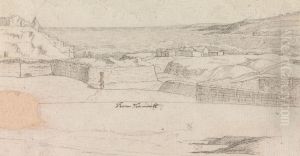Henry Swinburne Paintings
Henry Swinburne was an English travel writer and art historian, born in 1743. Although not as widely recognized today as some of his contemporaries, Swinburne made significant contributions to the travel literature of the 18th century, providing detailed accounts of his voyages through parts of Europe that were less known to the English-speaking world at the time. His observations were not just limited to art and architecture; they also included insights into the customs, politics, and landscapes of the regions he visited.
Swinburne embarked on his travels after studying at both Eton College and Cambridge University, where he developed a keen interest in classical literature and the arts. His most notable works include travelogues on his journeys through the two Sicilies (the Kingdom of Naples and the Kingdom of Sicily), which were published in the late 1770s and early 1780s. These books were particularly appreciated for their detailed descriptions of monuments, artworks, and antiquities, some of which were little known at the time.
In addition to his travels in Italy, Swinburne also explored parts of Spain and France, documenting his experiences in a manner that would influence other travel writers and historians. His writings on Spain were especially pioneering, as few English travelers had written extensively about Spanish art and culture before him. Swinburne's work provided a valuable English perspective on the cultural and artistic heritage of the countries he visited, helping to shape the perceptions of these regions among his contemporaries.
Swinburne's contributions to travel literature and art history were recognized in his time, and he was esteemed by intellectual and artistic circles. Despite his contributions, Swinburne's name has not endured as prominently as some of his peers in the field of travel writing and art history, due in part to the niche nature of his interests and the evolution of travel literature over time. Nevertheless, his detailed accounts and observations continue to serve as valuable resources for historians and art historians, offering insights into the cultural and artistic landscapes of 18th-century Europe. Henry Swinburne died in 1803, leaving behind a legacy of keen observation and detailed documentation of his travels.
